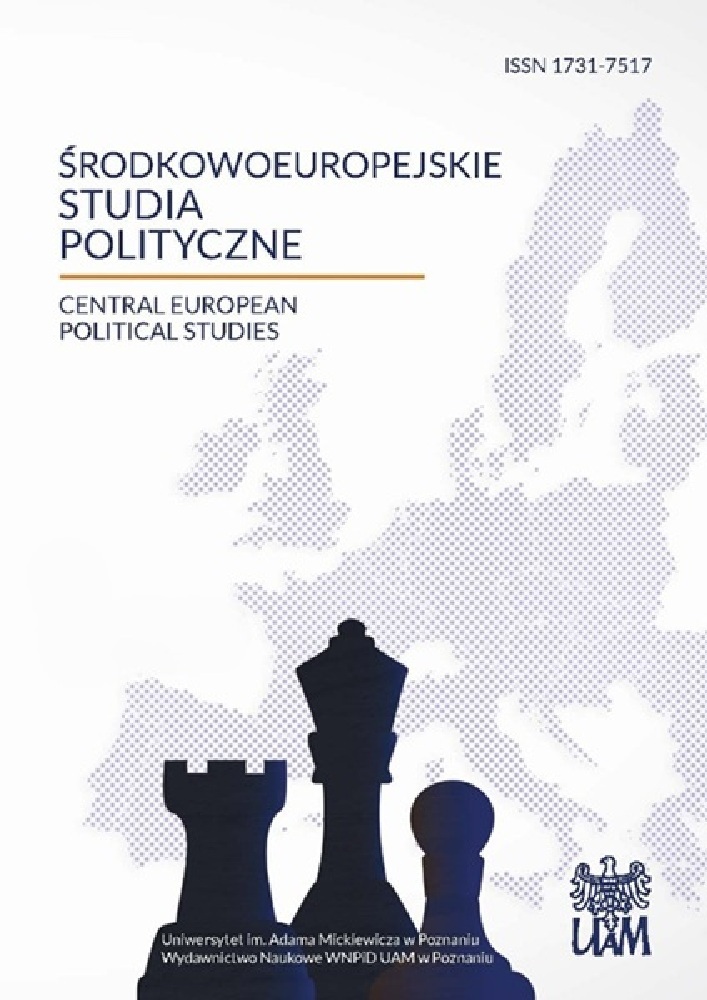Abstract
The excessive focus on entertainment in the content of the modern mass media has become the subject of academic reflection in Poland over the last decade. In the West this issue has been discussed for at least thirty years. Out of the various concepts that serve the purpose of describing and analyzing the focus on entertainment in the mass media the author focuses on the concept of infotainment, borrowed from American English; the meaning and scope of this concept in academic and journalistic texts is analyzed. It is indicated that the concept has a limited explanatory value when taken over without its cultural and linguistic context, and it is particularly useless as the name of a genre, used instead of the news. Discussing contemporary academic reflections on the focus on entertainment in the mass media and their content, three main currents are indicated and briefly described: the functional, historical and critically-discursive; the issue of the focus on entertainment of professional journalists is also addressed.References
Demers D., Dictionary of Mass Communication and Media research: a guide for students, scholars and professionals, Marguette 2005.
Esser F., Tabloidization of News. A Comparative Analysis of Anglo-American and German Press Journalism, „European Journal of Communication” 1999, vol. 14, s. 291–324.
Fang I., A History of Mass Communication. Six Information Revolution, Boston 1997. Fras J., Dziennikarski warsztat językowy, Wrocław 1999.
Fras J., Podstawy identyfikacji i typologii wypowiedzi w mediach masowych, w: Komunikologia – teoria i praktyka komunikacji, red. E. Kulczycki, M. Wendland (red.), Wyd. Naukowe IF UAM, Poznań 2012.
Fras J., Tabloidyzacja a mediatyzacja i logika mediów – wzajemne relacje pojęć, w: Współczesne media. Wolne media?, red. I. Hofman, D. Kępa-Figura, t. II, Wyd. UMCS, Lublin 2010, s. 59–80.
GodzicW., Prezenter, ekspert, celebrity, w: Media audiowizualne. Podręcznik akademicki, red. W. Godzic, WAiP, Warszawa.
Goban-Klas T., Cywilizacja medialna. Geneza, ewolucja, eksplozja, WSiP, Warszawa 2005.
Halawa M., Życie codzienne z telewizorem. Z badań terenowych, WAiP, Warszawa 2006.
Holtz-Bacha C., Political communication research abroad Europe, w: Handbook of Political Communication Research, red. L. L. Kaid, Lawrence Erlbaum Associates, Mahwall 2004, s. 463–477.
Tabloidyzacja języka i kultury, red. I. Kamińska-Szmaj, T. Piekot, M. Poprawa, „Oblicza komunikacji” 2010, nr 3, Wrocław 2010.
Krzemiński A., Mediokracja, „Polityka” z 16.04.2011.
Mrozowski M., Media Masowe. Władza, rozrywka i biznes, Warszawa 2001.
McQuail D., Mass Communication Theory, Sage 2005.
Narodowy Korpus Języka Polskiego, www.nkjp.pl.
Olczyk T., Politorozrywka i popperswazja, WAiP, Warszawa 2009.
Palczewski M., Definicje i koncepcje newsa w tradycji anglosaskiej. Przegląd i próba klasyfikacji, „Studia Medioznawcze” 2009, nr 3 (38).
Piontek D., Komunikowanie polityczne i kultura popularna. Tabloidyzacja informacji o polityce, Poznań 2011.
Piontek D., WiadomoŚci jak dobranocka, „Gazeta Wyborcza” z 23–24.10.2010.
Poulet B., Śmierć gazet i przyszłoŚć informacji, Wydawnictwo Czarne, 2011.
Postman N., Zabawić się na Śmierć: Dyskurs publiczny w epoce show-businessu,Wyd. Muza, Warszawa 2002.
Stockwell S., Reconsidering the Fourth Estate: The functions of infotainment, wystąpienie podczas spotkania Australian Political Studies Association na Uniwersytecie w Adelajdzie (29 wrzeŚnia–1 paŹdziernika 2004) dostępne w formie elektronicznej: http://www.adelaide.edu.au/apsa/docs_papers/Others/Stockwell. pdf (9.07.2012).
Strömbäck J., Four Phases of Mediatization: An Analyzis of Mediatization of Politics, „The International Journal of Press/Politics”, July 2008, vol. 13, no. 3, s. 228–246.
Szymoniak K., Między gazetą a Internetem – nowe gatunki dziennikarskie, paragatunki czy hybrydy?, „Język. Komunikacja. Informacja”, red. P. Nowak, P. Nowakowski, nr 3/2008, s. 121–138.
Worsowicz M., Inforozrywka w prasie, w: Nowe media, nowe w mediach, red. I. Borkowski, A. Woźny, Wyd. Uniwersytetu Wrocławskiego, Wrocław 2001.
Wright Ch. R., Mass Communication, New York 1975.
Zillmann D., Bryant J., Entertainment as media effect, w: Reader in Mass Communication Theory, red. D. McQuail, London–Thousand Oaks–New Delhi 2003.
Żórawski K., Wirus wiecznej zabawy, „Gazeta Wyborcza” z 9.02.2009.
License
Copyright
© 2013, Uniwersytet im. Adama Mickiewicza w Poznaniu, Wydawnictwo Naukowe Instytutu Nauk Politycznych i Dziennikarstwa
OPEN ACCESS
